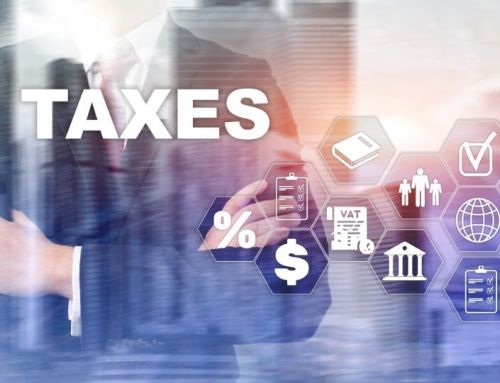Disputes between taxpayers and HM Revenue and Customs (HMRC) are more common than many think — and when negotiations fail, the next step may involve formal legal proceedings. For most tax appeals in the UK, that means appearing before the First-tier Tribunal Tax .
The First-tier Tribunal (Tax Chamber) is part of the UK’s independent tribunal system. It hears appeals from individuals and businesses challenging a wide range of HMRC Investigations — from VAT investigations and self-assessment penalties to IR35 disputes, tax avoidance schemes, business tax issues and helps in VAT recovery from business activities. It is designed to be accessible to the public, but navigating the process successfully still requires a clear understanding of how it works.
At The Taxcom, we’ve represented clients across a broad spectrum of tax disputes and appeals. We know how complex the rules can be, and how overwhelming it can feel for a taxpayer — especially one unfamiliar with legal proceedings — to go up against HMRC.
What Is the First-tier Tribunal Tax and What Does It Cover?
The First-tier Tribunal Tax is a specialist part of the UK judicial system that hears appeals against decisions made by HM Revenue and Customs (HMRC). It sits within the wider First-tier Tribunal structure, which handles different areas of administrative law, but the Tax Chamber is specifically responsible for tax disputes.
This tribunal operates independently of HMRC and is designed to offer a fair and impartial forum for individuals and businesses to challenge tax decisions. It is not part of the courts, but it has legal authority, and its decisions can significantly impact both financial outcomes and legal rights.
Legal Framework and Structure
The First-tier Tribunal Tax is governed by:
- The Tribunals, Courts and Enforcement Act 2007
- Specific procedure rules set out in the Tribunal Procedure (First-tier Tribunal) (Tax Chamber) Rules 2009
- Guidance from the Upper Tribunal and UK case law
It is part of the HM Courts and Tribunals Service (HMCTS) but operates separately from HMRC. This separation is crucial — it ensures that an HMRC decision is not reviewed by HMRC itself but by a legally neutral body.
What Kinds of Disputes Does It Handle?
The Tax Tribunal covers a wide range of tax-related appeals. These include, but are not limited to:
1. Income Tax and Self-Assessment Penalties
- Disputes over income tax returns
- Penalties for late filing or incorrect returns
- Enquiries and adjustments under self-assessment
2. VAT Assessments and Penalties
- HMRC decisions to deny VAT reclaims
- VAT registration disputes
- Incorrect VAT assessments or surcharges
3. PAYE and National Insurance Contributions (NICs)
- Disputes over employment status and employer obligations
- IR35 assessments (off-payroll working rules)
4. Tax Avoidance and Schemes
- Accelerated payment notices (APNs)
- Follower notices
- General Anti-Abuse Rule (GAAR) penalties
5. Corporation Tax and Business Tax Disputes
- Disallowance of business expenses
- Trading vs investment income disputes
- R&D tax credit disagreements
6. Customs and Excise Duties
- Import/export valuation disagreements
- Excise duty liabilities (e.g. alcohol, tobacco)
7. Stamp Duty Land Tax (SDLT)
- Disputes over reliefs or the application of SDLT rates
- Cases involving property reclassification or linked transactions
When Can You Appeal to the First-tier Tribunal Tax?
Before taking a dispute to the First-tier Tribunal Tax, it’s important to understand whether the decision you’ve received from HMRC is appealable, and what steps you must take beforehand. Not all disagreements with HMRC can be appealed immediately. Some must go through internal processes first, while others allow a direct appeal.
What Decisions Can Be Appealed?
You can appeal to the First-tier Tribunal Tax if HMRC has issued a formal notice of decision and you disagree with it. The decision must relate to a matter of law or tax assessment — not simply a complaint about HMRC service or delay. Common appealable decisions include:
- A tax assessment you believe is incorrect
- A penalty you feel is excessive or unjustified
- A decision to deny tax relief or repayment
- A classification or valuation of income, goods, or services
- An IR35 determination about employment status
- A refusal to accept your self-assessment return
- A notice to withdraw a tax registration (e.g. VAT)
The decision letter from HMRC will usually state whether you have the right to appeal and will outline the timeframe in which you must act.
Time Limits for Appealing
In most cases, you must submit your appeal to the First-tier Tribunal within 30 days of the date of the decision or review outcome.
Here’s a breakdown:
| Type of Action | Deadline |
| Appeal following an HMRC decision | 30 days from the date of the decision notice |
| Appeal after an HMRC internal review | 30 days from the date of the review conclusion |
| Appeal after HMRC refuses a review | 30 days from the date of refusal letter |
Failing to meet these deadlines can result in your case being struck out before it even reaches a hearing. While the tribunal has discretion to accept late appeals, you must show good reason for the delay — such as illness, administrative error beyond your control, or exceptional personal circumstances.
How to Submit an Appeal to the First-tier Tribunal Tax
If you’ve decided to appeal HMRC’s decision, the next step is formally submitting your case to the First-tier Tribunal Tax (Tax Chamber). While the process is designed to be accessible — and does not always require legal representation — it is still a formal legal proceeding, and errors or omissions can delay your appeal or cause it to be rejected outright.
Understanding the correct procedure is crucial to getting your case heard efficiently.
Where to Start
All appeals to the First-tier Tribunal Tax must be submitted to the Tax Chamber of the First-tier Tribunal, which operates under the HM Courts and Tribunals Service (HMCTS).
You can submit your appeal:
- Online, via the official HMCTS website
- By post, using form T240 (for individuals and partnerships) or T245 (for companies and organisations)
Information You Must Provide
Your appeal submission must include the following:
- Your full name or the name of your business
- Your address and contact details
- Your HMRC reference number
- A clear description of the decision you’re appealing
- The date of the decision
- A short but specific explanation of why you disagree with HMRC
- A copy of the decision letter or notice
- Whether you’ve requested a review from HMRC, and the result
- Whether you want a hearing in person, a remote hearing, or a decision on the papers
You can also submit supporting evidence, though in most cases, detailed evidence is exchanged later in the process. Still, it helps to attach anything relevant that supports your initial case.
What Happens After You Submit
Once your appeal is submitted, the tribunal will:
- Acknowledge receipt of your appeal and assign a case reference number.
- Check that the appeal is valid, including whether it was submitted on time.
- Serve a copy of your appeal to HMRC, who must respond with a statement of case.
This HMRC response typically includes:
- A summary of HMRC’s legal position
- Copies of relevant correspondence and internal notes
- A justification of the tax assessment or penalty
After this exchange, a tribunal case manager will issue directions for how the case will proceed, including deadlines for evidence disclosure, submission of witness statements, and setting a hearing date.
Representation and Costs
You are not required to have legal representation to appeal to the First-tier Tribunal Tax. However, many taxpayers choose to instruct a tax adviser, accountant, or solicitor — especially for complex or high-value cases.
Importantly, the tribunal follows the “no-costs” rule for most standard cases. This means that:
- You will not be required to pay HMRC’s legal costs if you lose
- HMRC will not be required to pay your costs if you win
For complex cases, the tribunal may allow cost recovery — but only if both parties agree in advance to opt into cost rules.
Can You Appeal Online?
Yes. HMCTS now provides a digital form via www.gov.uk/tax-tribunal where you can submit:
- Basic appeal information
- Uploaded supporting documents
- Requests for your preferred hearing type
Online appeals are faster and generate instant confirmation of receipt.
At The Taxcom, we assist both individuals and corporate clients with full tribunal representation and case preparation.
What to Expect at the First-tier Tribunal Tax Hearing

Once your appeal has been accepted and the case has progressed through the initial paperwork stage, the tribunal will issue directions leading up to a hearing — unless you’ve requested a decision “on the papers” (i.e. without a hearing). Hearings offer an opportunity for both the appellant (you) and HMRC to present arguments, evidence, and respond to questions from the judge or tribunal panel.
Although First-tier Tribunals Tax are more informal than traditional courts, the hearing is still a formal legal process, and preparation is key.
Types of Hearings
There are three main ways your appeal for First-tier Tribunal Tax might be heard:
1. Hearing in Person
- Held at a tribunal venue, typically a courtroom-style setting
- Both parties attend and present their case live
- You or your representative will speak directly to the tribunal judge
2. Remote Hearing
- Conducted via video conference (e.g. Microsoft Teams or CVP)
- Often used for convenience, especially for straightforward disputes or when travel is difficult
- You still present your case orally and respond to questions in real time
3. Decision on the Papers
- No live hearing; the tribunal makes a decision based solely on written submissions
- Suitable for low-value, undisputed facts, or where both parties agree the issue can be decided without oral evidence
- May result in quicker resolution, but lacks the opportunity to respond dynamically
Your choice of hearing must be indicated during the appeal process. The tribunal may also recommend one format over another based on complexity, value, or availability.
Who Will Be at the Hearing?
- A Tribunal Judge
- The HMRC presenting officer
- The appellant (You), and possibly:
- Your legal representative or accountant
- Any witnesses (e.g. business partners, tax advisers)
- An interpreter, if requested in advance
The First-tier Tribunal Tax is independent and impartial. Its role is not to act in favour of either side but to assess whether HMRC’s decision was correct in law and supported by the evidence.
What Happens During the Hearing?
- Introductions and procedural explanation
- Opening statements
- Evidence presentation
- Questions from the judge
- Closing statements
- Decision
The judge may give an immediate decision at the end of the hearing (less common), or more usually, the decision will be reserved and issued in writing within a few weeks.
Hearings can last from 30 minutes to several days depending on the complexity of the dispute.
Preparation for the Hearing
To give yourself the best chance of success:
- Know your case: Be clear on what you’re appealing and why you believe HMRC’s decision is wrong.
- Organise your documents: Ensure all relevant letters, statements, calculations, and correspondence are included in your evidence bundle.
- Submit witness statements in advance, if needed.
- Anticipate HMRC’s position: Review their statement of case and prepare responses to their arguments.
- Be clear and respectful when presenting your case; the tribunal values clarity and cooperation over aggression or legal jargon.
If you’re self-representing, tribunals will often provide some leeway in formality — but your evidence still needs to be well presented and your legal arguments coherent. We at The Taxcom are always here to assist you in all legal matters.
Tribunal Outcomes and What Happens After the Decision
Once your hearing is complete — or your appeal is decided on the papers — the First-tier Tribunal Tax will issue a decision notice. This outlines the outcome of your case, the reasons for the ruling, and what actions, if any, you or HMRC must take next.
The First-tier Tribunal’s Tax decision is legally binding, but either side may have the right to challenge it under certain circumstances. Understanding the possible outcomes and your next steps is essential, whether you win, lose, or receive a mixed result.
Possible Outcomes
1. Appeal Allowed (You Win)
The tribunal agrees with your position and either:
- Cancels HMRC’s tax assessment or penalty
- Orders HMRC to amend the amount
- Directs HMRC to repay overcharged tax
In this case, HMRC is legally bound to comply with the decision, though they may seek to appeal if they believe there has been an error in law.
2. Appeal Dismissed (You Lose)
The tribunal agrees with HMRC, meaning:
- The tax assessment or penalty stands
- You must pay the outstanding amount within the time specified by HMRC
- You may be subject to interest or enforcement action if payment is delayed
If your appeal is dismissed, you still have the right to apply for permission to appeal to the Upper Tribunal, but only if there is an arguable error of law in the decision.
3. Partial Success (Mixed Decision)
The First-tier Tribunal Tax may agree with some of your points and disagree with others. For example:
- The amount of tax may be reduced but not eliminated
- A penalty may be downgraded or removed, while the underlying tax is upheld
- The tribunal may invite both parties to negotiate a revised position
Mixed decisions are common in complex disputes involving multiple issues or periods.
Receiving the Decision
The First-tier Tribunal Tax usually issues a written decision within four to six weeks of the hearing. It includes:
- A summary of the case and issues considered
- The tribunal’s findings of fact
- A written explanation of its legal reasoning
- A final ruling, with clear instructions (if applicable)
The decision is sent to both parties and is often published online on the UK Government’s tribunal decisions database (unless anonymised or restricted by request).
What If You Disagree with the Decision?
If you believe the tribunal made a mistake in law — for example, misapplying legislation, ignoring key legal arguments, or acting unfairly — you can:
- Request a written explanation or correction
- Must be made within 28 days
- Only for obvious errors or clerical mistakes
- Apply for permission to appeal to the Upper Tribunal
- First, apply to the First-tier Tribunal for permission
- If refused, you can then apply directly to the Upper Tribunal
- You must show that the decision involved an error of law, not just that you disagree with the outcome
Enforcing or Complying with the Decision
If you win:
- HMRC will generally update your records and issue any refund or correction within a few weeks
- You should follow up with your tax adviser or accountant to ensure HMRC has complied fully
If you lose:
- You must settle any outstanding liabilities, unless you are applying for a further appeal
- HMRC may begin enforcement action, such as debt recovery or interest charges, if payment is not made
It’s important to act quickly and seek professional advice to avoid further penalties or complications. At The Taxcom, we regularly assist both individuals and corporate clients with full tribunal representation and case preparation.
Frequently Asked Questions (FAQs)
Do I need a solicitor or tax adviser to go to the First-tier Tribunal Tax?
You are not legally required to have representation. The tribunal system is designed to be accessible, and many taxpayers represent themselves — particularly for smaller or straightforward disputes.
At The Taxcom, we regularly assist both individuals and corporate clients with full tribunal representation and case preparation.
What if I can’t afford to pay the tax bill while I appeal?
You may still proceed with your appeal, even if you cannot pay the tax in full. Submitting an appeal to the tribunal may pause some enforcement action while the dispute is ongoing.
However:
- Interest may continue to accrue on unpaid amounts
- In some cases, HMRC may still pursue collection (e.g. through Accelerated Payment Notices, where payment is required upfront)
You should discuss your situation with HMRC’s debt management team and seek legal advice to understand whether any deferrals or safeguards can be applied.
How long does it take for a First-tier Tribunal Tax case to be resolved?
Timeframes vary depending on the complexity of the case, the hearing type, and how quickly both parties respond to tribunal directions.
Typical timelines:
- Simple paper cases: 3–6 months
- Oral hearings for standard appeals: 6–12 months
- Complex appeals with significant evidence: 12–24 months or more
Delays can also occur due to backlogs in the tribunal system or late submissions by either party. Ensuring all documents are submitted on time and in the correct format helps move your case forward efficiently.
Can I negotiate a settlement with HMRC after I’ve appealed?
Yes. Submitting a First-tier Tribunal Tax appeal does not prevent you from reaching a negotiated settlement with HMRC outside the formal hearing process.
In fact, many cases are settled before they ever reach the hearing stage. If you or your representative engage with HMRC and can present strong evidence or arguments, HMRC may revise its position. You can withdraw your appeal at any time if the dispute is resolved.
However, if settlement discussions fail or stall, the tribunal will continue as scheduled.
What happens if I miss the appeal deadline?
The standard deadline to appeal a tax decision is 30 days from the date of the decision or review. If you miss this window, you can still request that the tribunal accept a late appeal, but you must:
- Submit the appeal as soon as possible
- Include a written explanation of why it is late
- Show that the delay was due to circumstances outside your control
The tribunal will consider:
- The length of the delay
- The reasons provided
- The prospects of success in the appeal
- Whether accepting a late appeal would prejudice HMRC
Late appeals are not guaranteed to be accepted — legal advice is recommended.
Will the hearing be open to the public?
First-tier Tribunal Tax hearings are generally held in public, meaning members of the public and press can attend. However, the majority of tax tribunal cases attract little or no public interest and are not widely reported.
If there is a privacy concern, such as sensitive commercial data or personal financial hardship, you can request a private hearing or an anonymised judgment — but this must be granted by the judge.
Is the decision final?
A First-tier Tribunal Tax decision is final unless you appeal. If you believe there was an error of law, you may apply for permission to appeal to the Upper Tribunal.
You must:
- Submit your request for permission within 28 days
- Identify the specific legal grounds on which you believe the tribunal was wrong
Appeals to the Upper Tribunal are relatively rare and should only be pursued with strong legal advice.
How The Taxcom Can Help
At The Taxcom, we provide expert representation and advisory services for individuals, self-employed professionals, and companies involved in tax disputes with HMRC. Our specialist team supports clients at every stage of the process — from initial challenge and statutory review, through to full representation before the First-tier Tribunal Tax and beyond.
With offices across the UK and in-depth expertise in both technical tax and legal matters, we ensure your case is handled professionally and strategically. Contact us today.
Also checkout previous Blogs
Table of Content
- Legal Framework and Structure
- What Kinds of Disputes Does It Handle?
- What Decisions Can Be Appealed?
- Time Limits for Appealing
- Where to Start
- Information You Must Provide
- What Happens After You Submit
- Representation and Costs
- Can You Appeal Online?
- Types of Hearings
- Who Will Be at the Hearing?
- What Happens During the Hearing?
- Preparation for the Hearing
- Possible Outcomes
- Receiving the Decision
- What If You Disagree with the Decision?
- Enforcing or Complying with the Decision
- Do I need a solicitor or tax adviser to go to the First-tier Tribunal Tax?
- What if I can’t afford to pay the tax bill while I appeal?
- How long does it take for a First-tier Tribunal Tax case to be resolved?
- Can I negotiate a settlement with HMRC after I’ve appealed?
- What happens if I miss the appeal deadline?
- Will the hearing be open to the public?
- Is the decision final?

Our Content Writing Team boasts a proven track record of crafting engaging and impactful content that drives success and achieves results.







